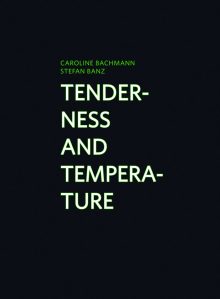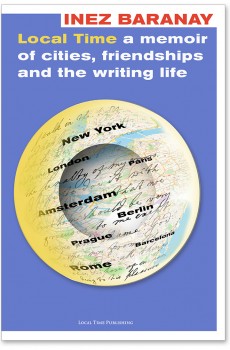For much of the book, Zweig brings all his formidable talents as a writer to evoke the Europe which he had lost. There is a fierce intelligence, a passionate humanity, a reverence for art at play here. He is in a sense a revenant, for his first readers no less than for us too, in that he embodies that lost Europe. We are given vivid, indelible portraits of Rilke, Rodin, Freud, Herzl, Hoffmanstahl, Rathenau, Joyce, Richard Strauss… These are some of those whom Zweig met and knew, sometimes worked and collaborated with.
Tag: nonfiction
A review of How to get Great Book Reviews Frugally and Ethically by Carolyn Howard-Johnson
 Frugality is Howard-Johnson’s stock-in-trade, and since none of her suggestions involve a large outlay, I’d say that picking up a copy of this book is about the most frugal and valuable thing a new author can do in order to generate inexpensive and highly credible publicity. The book is easy to read, and rich with Howard-Johnson’s own considerable experience. Above all, I think the point that she makes about treating the acquiring of reviews, not as an ancillary activity, but an integral part of the promotional campaign and one that cannot be skimped on, is key.
Frugality is Howard-Johnson’s stock-in-trade, and since none of her suggestions involve a large outlay, I’d say that picking up a copy of this book is about the most frugal and valuable thing a new author can do in order to generate inexpensive and highly credible publicity. The book is easy to read, and rich with Howard-Johnson’s own considerable experience. Above all, I think the point that she makes about treating the acquiring of reviews, not as an ancillary activity, but an integral part of the promotional campaign and one that cannot be skimped on, is key.
An interview with Laurie Hess, author of Unlikely Companions
 The author of Unlikely Companions talks about the inspiration for her book, about how she managed to fit writing into her busy schedule, about the sugar glider story, the best piece of advice she was ever given, her heroes, and lots more.
The author of Unlikely Companions talks about the inspiration for her book, about how she managed to fit writing into her busy schedule, about the sugar glider story, the best piece of advice she was ever given, her heroes, and lots more.
A review of The Abecedarium of the Artist’s Death by Moussa Kone
 Kone’s drawings are beautifully composed and are not without a healthy dollop of black humour (e.g. ‘I is for Ingrid who trusted her friends…’) but for the most part they are quirky and amusing rather than disquieting, as is almost always the case with Gorey. They will raise a wry smile, certainly, but they won’t put you on edge as Gorey’s drawings are wont to do.
Kone’s drawings are beautifully composed and are not without a healthy dollop of black humour (e.g. ‘I is for Ingrid who trusted her friends…’) but for the most part they are quirky and amusing rather than disquieting, as is almost always the case with Gorey. They will raise a wry smile, certainly, but they won’t put you on edge as Gorey’s drawings are wont to do.
A review of Tenderness and Temperature by Caroline Bachmann and Stefan Banz
 Cemeteries are strange spaces, otherworldly (a gateway to the afterlife) yet of this world. You see an angel’s wings and, looking lost, a child’s teddy bear. That glint of sunlight piercing oblivion’s black veil is sacred, holy are those red and pink flowers laid by the earth in which the Dead are buried – not a uniquely human custom, for the Neanderthals buried their loved ones.
Cemeteries are strange spaces, otherworldly (a gateway to the afterlife) yet of this world. You see an angel’s wings and, looking lost, a child’s teddy bear. That glint of sunlight piercing oblivion’s black veil is sacred, holy are those red and pink flowers laid by the earth in which the Dead are buried – not a uniquely human custom, for the Neanderthals buried their loved ones.
A review of Andrei Tarkovsky by Sean Martin
 An artist who set himself the task of capturing consciousness on the hoof, making tangible the fleeting quail of phenomenal experience, Tarkovsky made things hard for himself and harder still for all directors who would follow in his footsteps. Man, he set the bar high. Even Bergman, one of the true greats, acknowledges that he is without peer.
An artist who set himself the task of capturing consciousness on the hoof, making tangible the fleeting quail of phenomenal experience, Tarkovsky made things hard for himself and harder still for all directors who would follow in his footsteps. Man, he set the bar high. Even Bergman, one of the true greats, acknowledges that he is without peer.
A review of Nagasaki by Craig Collie
 The atomic bomb, that infamous masterpiece of twenty-century technology created by the allies’ best brains trust and costing two billion dollars, was almost brought undone due to military maintenance malfunctions. Craig Collie has skilfully put together a splendid chronological record of mankind’s most successful killing implement and the combined consequences of a double dose of its destruction.
The atomic bomb, that infamous masterpiece of twenty-century technology created by the allies’ best brains trust and costing two billion dollars, was almost brought undone due to military maintenance malfunctions. Craig Collie has skilfully put together a splendid chronological record of mankind’s most successful killing implement and the combined consequences of a double dose of its destruction.
A review of Museum of Unheard (of) Things by Roland Albrecht
 These stories, which function to cast a dim aura to the otherwise miserable objects, are “Unerhörten” in the two sense of that German word: they are “unheard” and “unheard of”—unknown and outrageous, suppressed and surprising. But for the non-German speakers, this adjective carried a third meaning: it was impossible to hear them, because all the stories could only be read in German. Until now, that is. The 78 stories in the entire collection have been translated into English by You Nakai and Alexander Booth, assembled together following the order of their weight, and published as the official catalogue raisonné of the museum.
These stories, which function to cast a dim aura to the otherwise miserable objects, are “Unerhörten” in the two sense of that German word: they are “unheard” and “unheard of”—unknown and outrageous, suppressed and surprising. But for the non-German speakers, this adjective carried a third meaning: it was impossible to hear them, because all the stories could only be read in German. Until now, that is. The 78 stories in the entire collection have been translated into English by You Nakai and Alexander Booth, assembled together following the order of their weight, and published as the official catalogue raisonné of the museum.
A review of Review of Researching Creative Writing by Jen Webb
 This is a book that has the potential to help creative writers ‘make knowledge festive’ in the process of creating their research projects. It is structured logically so as to make for optimal comprehension. It is superbly written and gives exciting examples of writers and books that illustrate the process of researching creative writing and writing as research.
This is a book that has the potential to help creative writers ‘make knowledge festive’ in the process of creating their research projects. It is structured logically so as to make for optimal comprehension. It is superbly written and gives exciting examples of writers and books that illustrate the process of researching creative writing and writing as research.
A review of Local Time: a memoir of cities, friendships and the writing life by Inez Baranay
 Baranay’s memoir is about travelling, art and culture(s) and food, home (and not having one), writing, and friendship. She begins by telling the reader that an inheritance has allowed her to plan a trip to Europe in 2006, one that will enable her to live well while she’s travelling but not be away too long as she does not want to stop writing for too many months. The author does not expect to write while she’s away, which gives us the first hint of a commitment to writing that is strong but realistic. In fact, she does write, and she describes how her life really revolves around writing and reading as well as friendship and human connection.
Baranay’s memoir is about travelling, art and culture(s) and food, home (and not having one), writing, and friendship. She begins by telling the reader that an inheritance has allowed her to plan a trip to Europe in 2006, one that will enable her to live well while she’s travelling but not be away too long as she does not want to stop writing for too many months. The author does not expect to write while she’s away, which gives us the first hint of a commitment to writing that is strong but realistic. In fact, she does write, and she describes how her life really revolves around writing and reading as well as friendship and human connection.